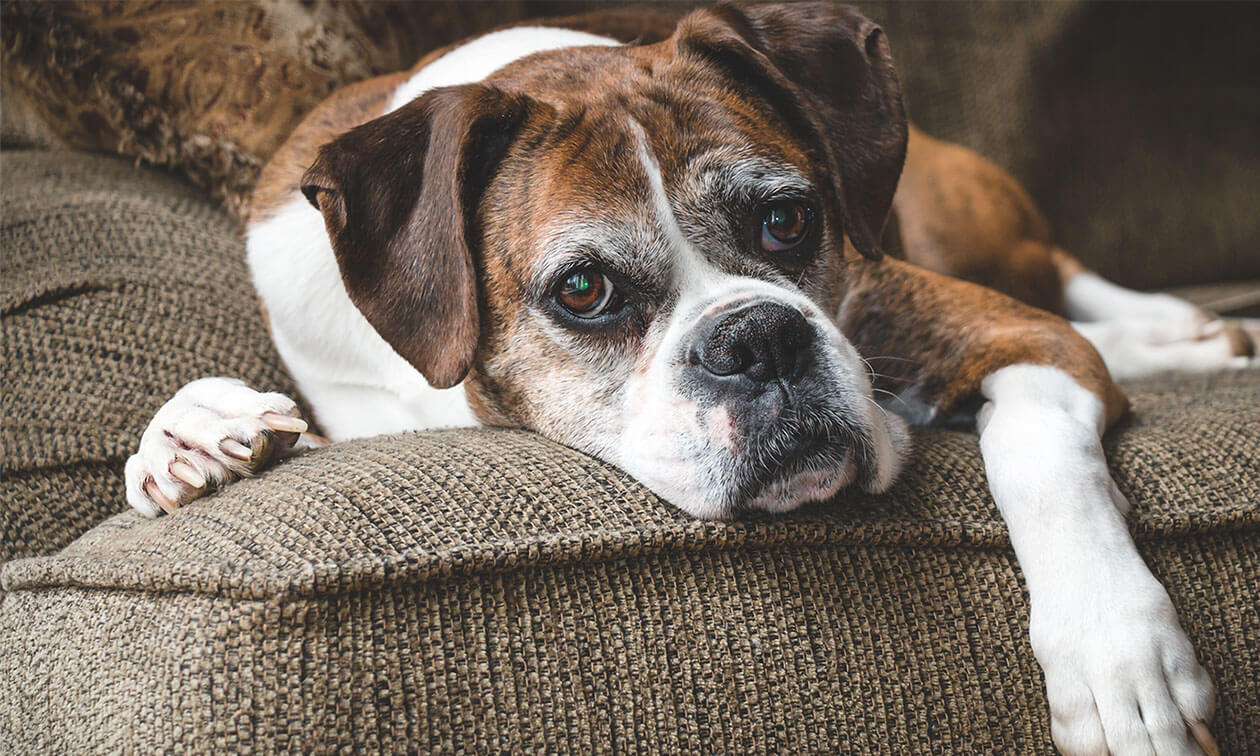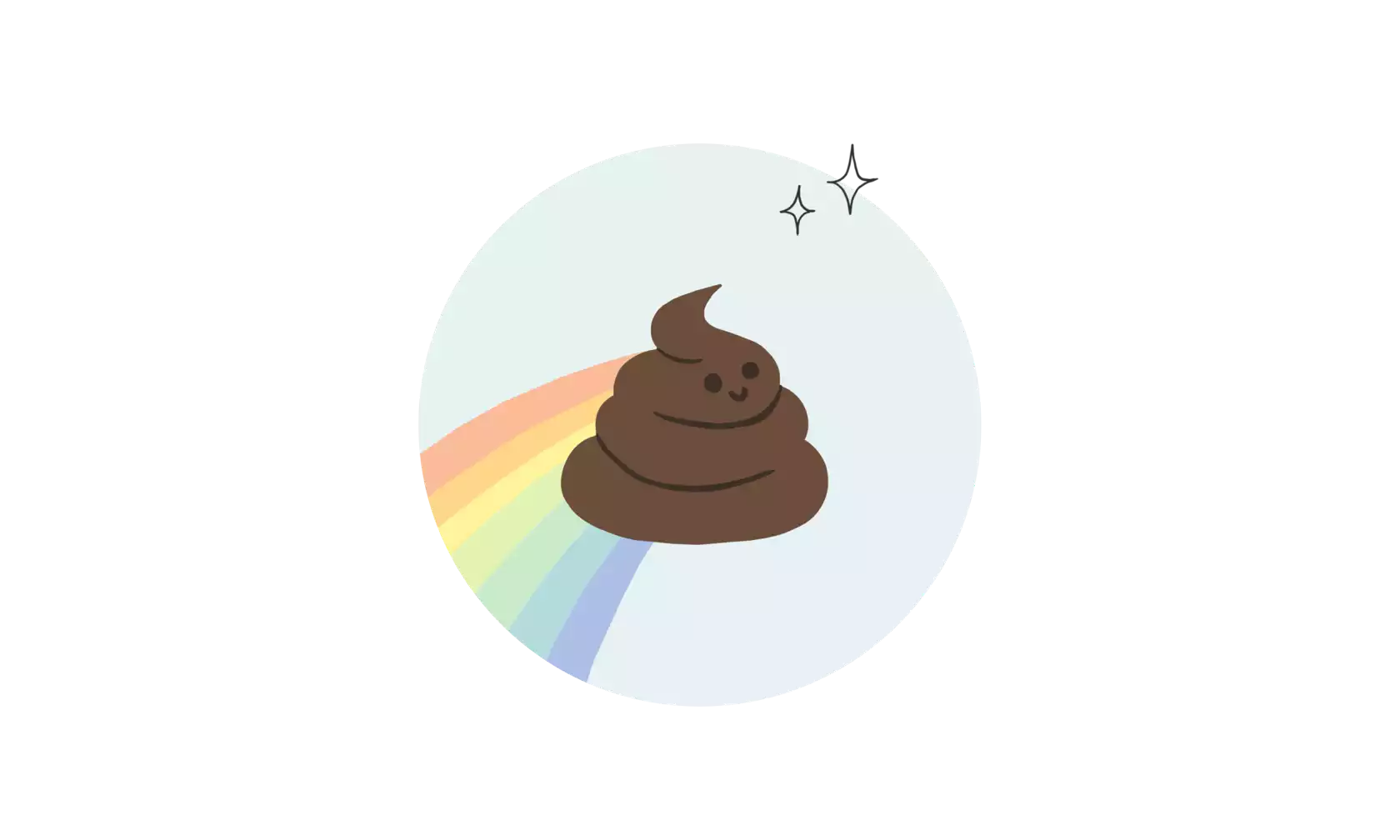Dealing with dog poop is just part of being a dog owner, but loose stool in dogs is less than ideal. While some dogs just have softer poops, diarrhea is recognized as unformed, even liquid stool that happens more frequently and/or in larger amounts than normal.
Diarrhea in dogs isn’t normal — so if you notice that something’s up, it’s best to take your dog to the vet. Remember, dogs can get dehydrated with diarrhea and it can be a sign of a more serious problem.
When To See a Veterinarian for Your Dog’s Diarrhea
While you may be able to make your dog feel better at home, the best way to help a dog with diarrhea is to take them to the veterinarian for treatment.
See a veterinarian immediately if your dog has any of these signs:
- Very lethargic
- Not eating and/or drinking
- Cannot keep food or water down
- Frequent watery diarrhea (every one to two hours)
- Diarrhea lasting a few days
- Blood in the poop
- Poop is black or dark red (tarry)
Whether you’re going for an emergency visit or scheduling a visit to your veterinarian for your dog’s diarrhea, collect a fresh stool sample to take with you. Wear gloves and seal the sample in a plastic container.
How To Help Your Dog with Diarrhea at Home
If you can’t get your dog an immediate appointment with the vet, a bland diet can help their upset stomach feel a bit better while you wait. A bland diet isn’t a diarrhea home remedy. Rather, it’s an easy meal for your dog to digest (think of it like you eating crackers and soup when you’re not feeling well).
Feeding three to four small meals a day helps maximize the intestine’s ability to digest food and absorb water. Small meals also reduce the amount of material entering the colon at any given time, so there is less diarrhea.
Here are some bland commercial diets and recipes you can make at home.
Commercial Sensitive Stomach Diets
These are available for adults and puppies at veterinary clinics. There are prescription diets made especially for dogs with diarrhea. They work the best and may even contain electrolytes. There are some sensitive stomach diets available at pet stores that can also help but aren’t as well formulated for sick dogs as the prescription diets.
Homemade Options
Prescription diets are best, but if you don’t have one available you can try a homemade option. Be careful to follow directions exactly and do not add ingredients to the diet. The easiest one is boiled hamburger with the fat drained off and white rice. Do 2/3 rice to 1/3 of the hamburger. Do not use oils or butter.
Do NOT fast or withhold food from puppies less than six months of age. Puppies are more likely to develop low blood sugar from fasting. Never withhold water from a dog with diarrhea.
What To Give Dogs for Diarrhea
In addition to a gentle diet, there are some over-the-counter supplements that may help sooth your dog’s stomach. These should not be given in place of medical treatment from a veterinarian. You can give them a try while you’re waiting to see or speak with your veterinarian.
Probiotics Designed for Dogs
Probiotics are live bacteria that can support healthy digestion, among other things. The most effective probiotics come as supplements you can give as chewable treats, capsules, or powder to mix with food.
Prebiotic Fiber Designed for Dogs
Prebiotic fibers are food for beneficial bacteria and serve as an energy source for healthy intestinal cells. They are combined with some probiotics or found in some commercial Sensitive Stomach diets.
Medications To Avoid for Your Dog’s Diarrhea
Do not give these medications unless recommended by your veterinarian.
- Pepto-Bismol® and human Kao Pectate®. These contain bismuth subsalicylate, an ingredient similar to aspirin, which may cause gastrointestinal bleeding in some dogs.
- Imodium®. This medication can cause toxicity in some dogs. It can also cause worsening signs in dogs with many underlying diseases or intestinal infections.
If your dog has any underlying disease or is currently taking any medications, always check with your veterinarian first to ensure that any new diet or medication is safe. If your dog is worse after trying any home treatment, please take your dog to the veterinarian as soon as possible for diagnostics and treatment.
ZPC-03982



